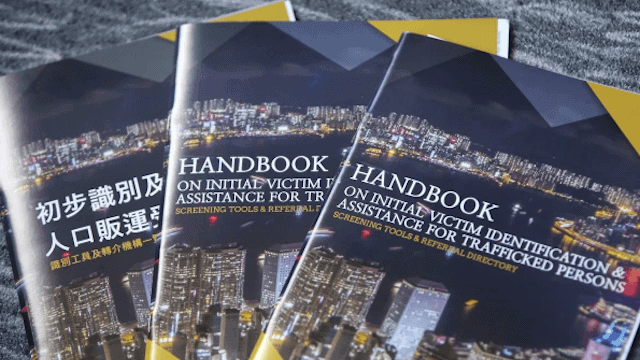A new handbook on trafficking victim identification has helped identify more than 60 cases of human trafficking in Hong Kong within the last year.
The Civil Society Anti-Human Trafficking Task Force, which created the handbook, says the 63 genuine cases out of 1,037 suspected reports of human trafficking are proof that the crime is more prevalent than the government would like to believe.
“It’s actually quite high – it’s 6 per cent,” said group member and former lawmaker Lee Cheuk-yan. “Imagine that figure applied to 300,000 [foreign domestic workers in the city] that would come up to 1,800 victims.”
The task force is comprised of 27 civil society organizations, and the handbook provides a standard questionnaire for potential victims of trafficking that ensures that victims don’t have to repeat accounts of abuse over multiple interviews.
The South China Morning Post reports that Indonesians and Indians comprised most of the identified victims:
Of the 63 cases, 59 involved labour exploitation, two victims were forced into prostitution, one case was forced marriage and one involved both sexual and labour exploitation.
Seventy per cent of the victims were holders of domestic helper visas and 73 per cent were women. Indonesia and India had the highest number of victims, 24 and 18, respectively.
There is no official data from the government or human rights groups on victims in Hong Kong, where there is no specific law against human trafficking.
While the city launched an action plan in March to crack down on human trafficking, officials ruled out introducing anti-human trafficking laws, saying the city was equipped with at least 49 pieces of legislation to combat related crimes.
Lee, who is also general secretary of Hong Kong Confederation of Trade Unions, stressed that the government needed to support victims of human trafficking because they have no income to survive if they run away from an abusive employer.
Nurul Qoiriah, head of the Hong Kong office for the International Organization for Migration, said that the government can no longer pretend human trafficking isn’t a problem.
“The Hong Kong government has kept denying it. Now we have the cases, the names, so here is the evidence,” she said.







Freedom United is interested in hearing from our community and welcomes relevant, informed comments, advice, and insights that advance the conversation around our campaigns and advocacy. We value inclusivity and respect within our community. To be approved, your comments should be civil.